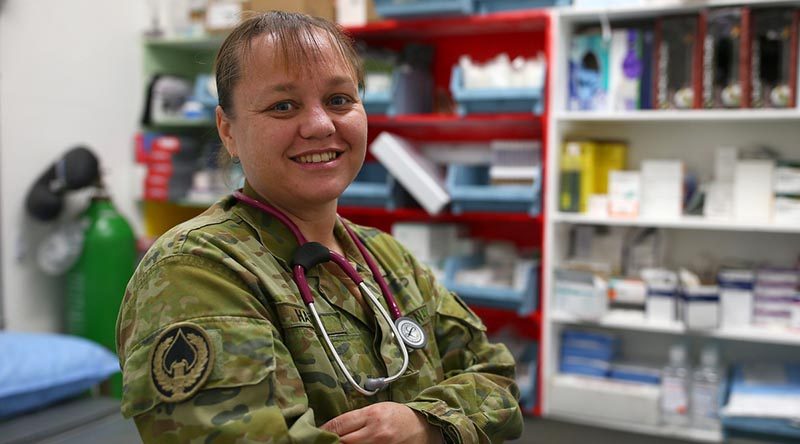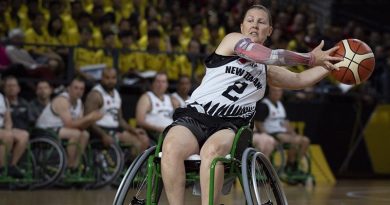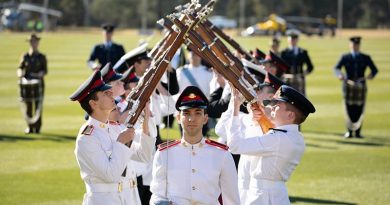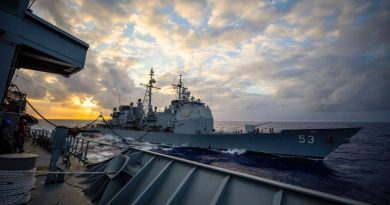Navy medic’s mission ashore in Afghanistan

The sound of an alarm at Afghanistan’s Bagram Airfield is a trigger that gets Chief Petty Officer medic Sarah Hall’s blood pumping.
The warnings sound when insurgents fire rockets or mortar rounds at the base.
“Those alarms get the heart racing, particularly if you hear the rocket flying overhead,” she said.
“As soon as we hear those alarms we lay on the ground for a while but then we’ve got to come into the clinic, get all out gear on, load up the trucks, and be ready to move.”
CPO Hall has spent plenty of time at sea, however now she finds herself in a land-locked country where the potential call for her skills is perhaps greater than at any previous time spent at sea.
“Alarms on the ship get your heart pumping as well, but this kind of has a different context to it,” she said.
“You don’t know what’s happened or how many causalities you have.
“As much as you prepare, anything can happen.
“Fortunately we haven’t had any casualties but we’ve had a lot of alarms.”
CPO Hall is the senior medic at a clinic supporting NATO’s Special Operations Component Command – Afghanistan.
The clinic runs a sick parade and is responsible for incident response.
“Patients present with generally the same things seen at sea, but on operations there is more pressure to get them back to their jobs,” she said.
She also conducts training with for new staff when they arrive, checking their medical kits and making sure they can use everything.
“People seem to have been quite well trained, most of the time it’s just a bit of a refresher on new equipment and make sure they’re happy with how to use it,” she said.
The clinic’s staff includes Americans along with an Austrian Special Forces medic named Hans.
“Every now and then we’ll have an Austrian day where Hans brings out all his food, he puts polka music on and wears a polka outfit,” CPO Hall said.
“I’ve introduced them to Tim Tams and I get in trouble if we run out.”
CPO Hall had to learn American names for pharmaceuticals and different dosages when she after she arrived in-theatre in the middle of the year, but helping the Americans to copy Australian sayings proved much harder.
“I’m trying to get them down with the lingo,” she said.
“‘G’day mate’ is probably the hardest one for them to say, I’m not sure why.
“I’ve got to translate a lot of things; they give me a hard time about me saying tourniquet where they say ‘torneket’.”
.
.
.
.
.

.
.

.





